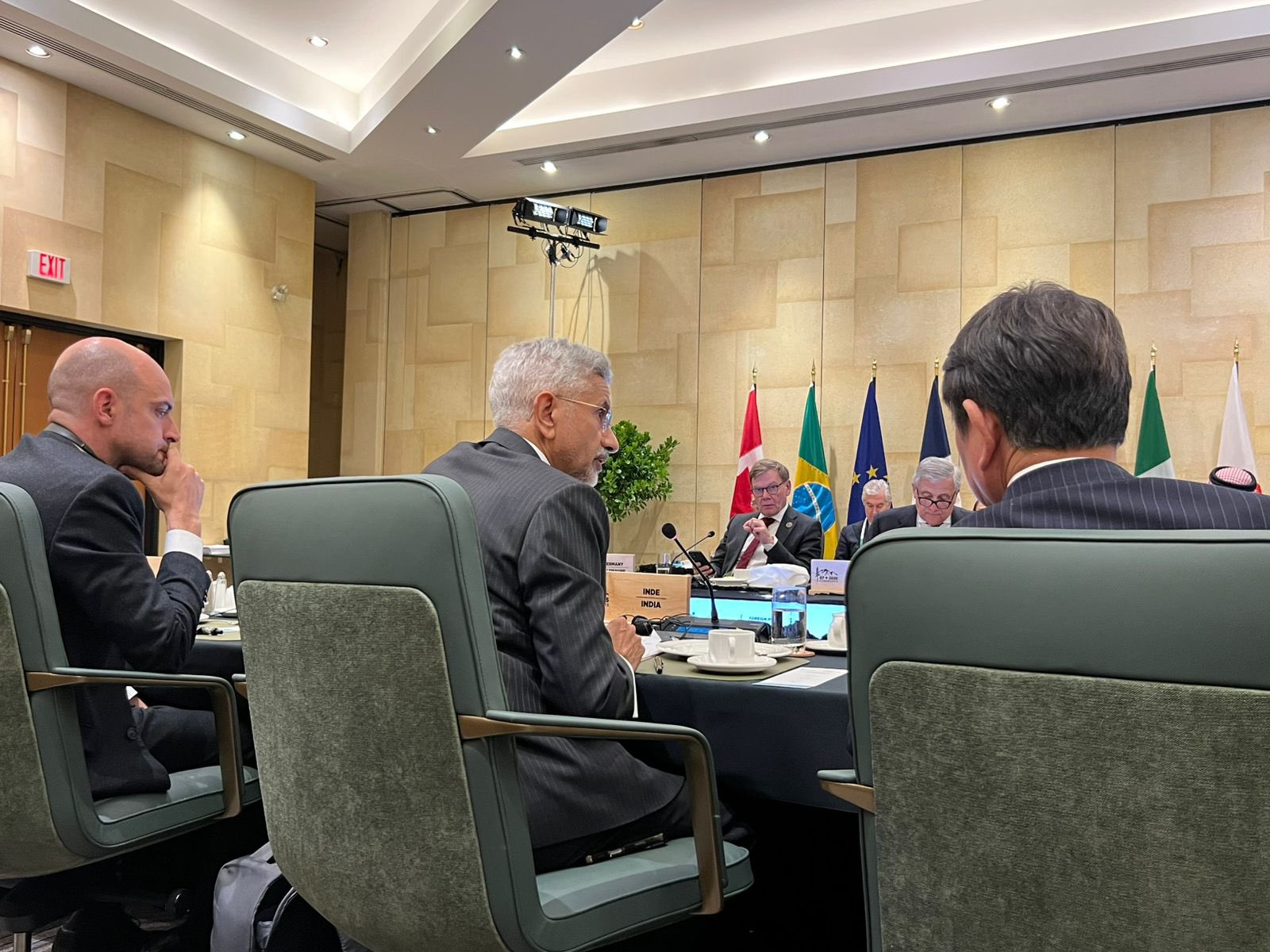External Affairs Minister S. Jaishankar held a series of bilateral and multilateral engagements on Wednesday at the G7 Foreign Ministers’ Meeting in Niagara, Canada, where he participated in discussions on energy security, critical minerals, and maritime cooperation.
During the outreach session on energy security and critical minerals, Dr. Jaishankar presented India’s perspective, highlighting the need to reduce dependence, enhance predictability, and build resilience in global supply chains.
In a post on X, he said, “Spoke about the need on both issues to mitigate dependence, strengthen predictability and build resilience. Greater international cooperation is the only way forward. Noted the unpredictability and market constrictions in global supply. More policy consultations and coordination are helpful.”
The External Affairs Minister underlined that implementation remains “key,” adding that India is open to working constructively with international partners in this area.
Jaishankar also attended a special session on maritime security, where he underscored India’s emergence as a “first responder in the maritime domain” and its efforts to strengthen Humanitarian Assistance and Disaster Relief (HADR) partnerships in the Indo-Pacific through joint exercises and logistics agreements.
He underlined New Delhi’s approach to maritime security through the “MAHASAGAR outlook,” Indo-Pacific cooperation, and port-led development initiatives at home.
Jaishankar outlined India’s key recommendations: the importance of trusted and diversified maritime links, upgrading shipping infrastructure, developing resilient trade corridors, and enhancing coordination to protect critical maritime and undersea infrastructure. He further noted that maritime threats and economic crimes, including piracy, smuggling, and illegal, unreported, and unregulated (IUU) fishing, require deeper international collaboration.
Dr. Jaishankar stressed that maritime trade remains vital to national and international prosperity, and resilient ports and secure waterways are essential to advancing the global agenda. He reaffirmed that the United Nations Convention on the Law of the Sea (UNCLOS) must be upheld.
On the sidelines of the G7 meeting, the External Affairs Minister held a series of bilateral discussions with his counterparts from the European Union, Ukraine, Saudi Arabia, and the United States.
In his meeting with Ukraine’s Foreign Minister Andrii Sybiha, the two leaders exchanged views on recent developments in Ukraine. “A useful conversation sharing Ukraine’s perspective on recent developments,” Dr. Jaishankar wrote on X.
Foreign Minister Sybiha also shared on X, “I was glad to meet with @DrSJaishankar to discuss cooperation between Ukraine and India and international developments. I shared our view of the path to peace, battlefield situation, and Russia’s dangerous strikes on critical substations powering Ukrainian nuclear power plants.”
Dr. Jaishankar also met European Union High Representative for Foreign Affairs Kaja Kallas to discuss strengthening the India-EU Strategic Partnership and exchanged views on the G7 agenda.
In his engagement with Saudi Foreign Minister Prince Faisal bin Farhan, Dr. Jaishankar said the discussions “covered bilateral ties, regional hotspots, connectivity and energy.” The Saudi Ministry of Foreign Affairs also confirmed the meeting on X, stating that the discussions were held on the sidelines of the G7 Foreign Ministers’ Meeting.
Dr. Jaishankar later met U.S. Secretary of State Marco Rubio, who expressed condolences over the loss of lives in the Delhi blast earlier this week.
In a post, Dr. Jaishankar said, “Good to meet @SecRubio this morning at #G7 FMM. Appreciate his condolences on the loss of lives in the blast in Delhi. Discussed our bilateral ties, focusing on trade and supply chains. Exchanged views on the Ukraine conflict, the Middle East/West Asia situation, and the Indo-Pacific.”
Earlier, on Tuesday, the External Affairs Minister also held bilateral meetings with his counterparts from Canada, Mexico, France, Brazil, South Africa, the United Kingdom, and Germany.














